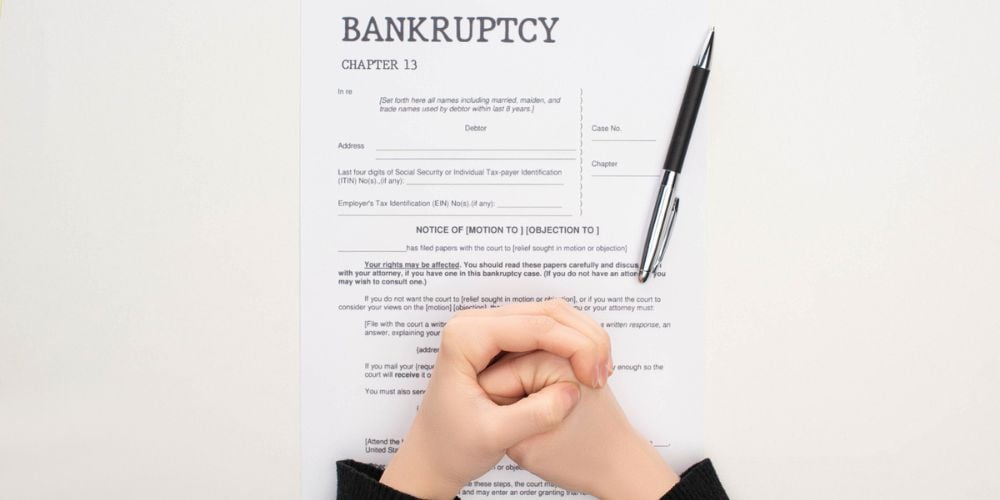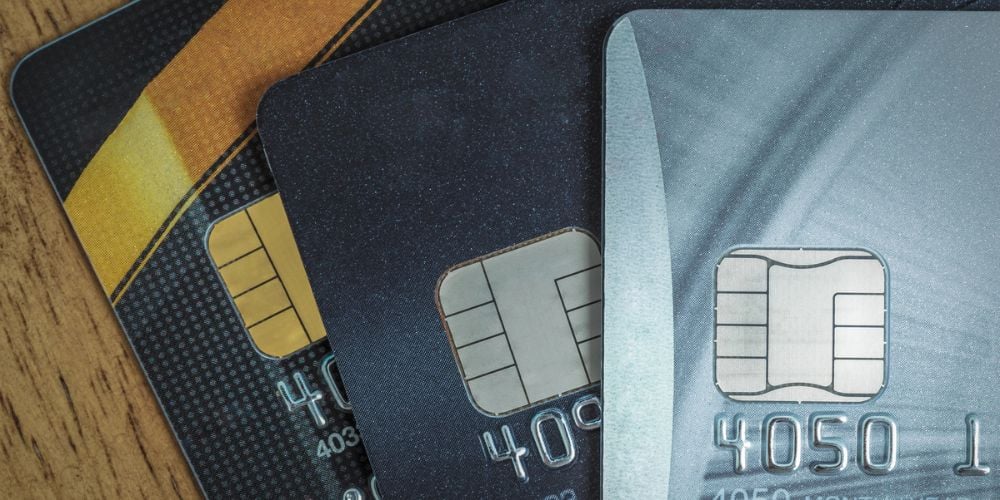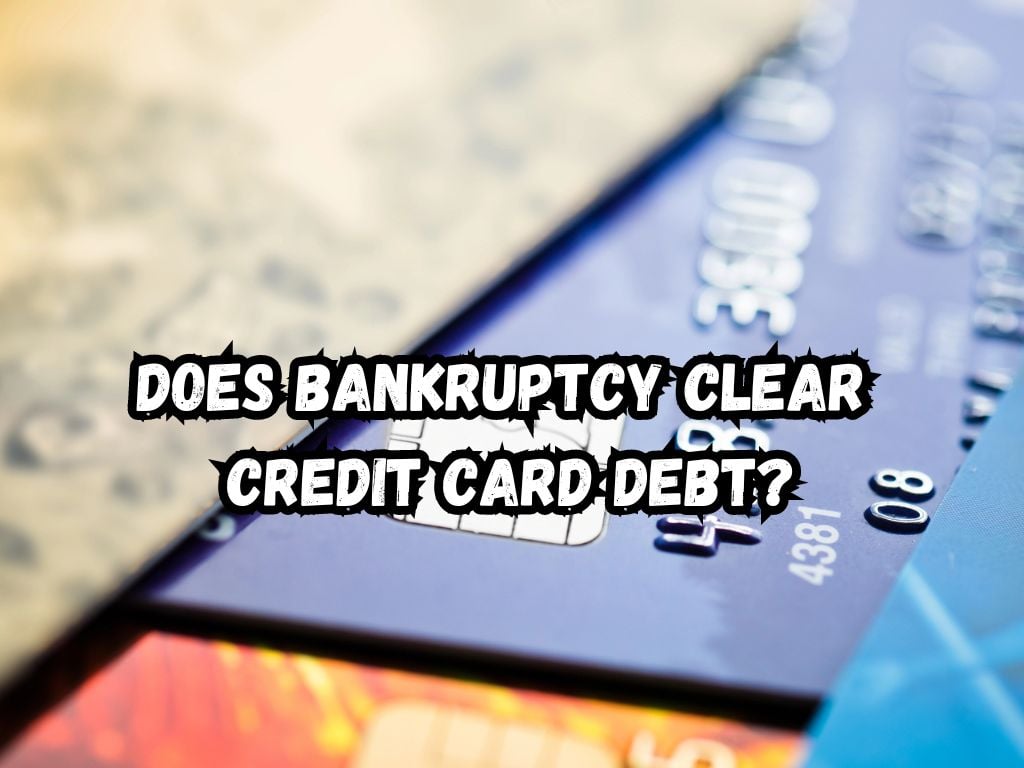Filing for bankruptcy often comes as a last resort for individuals swimming in unmanageable debt. It’s a process recognized under federal law that provides a pathway for people to either eliminate their debts or repay them under the protection of bankruptcy court. Let’s learn, does bankruptcy clear credit card debt?
Among various kinds of debts, credit card debt stands out as a common concern for many. In this article, we dive into whether bankruptcy can clear credit card debt and the nuances involved in such financial relief.
Chapter 7 Bankruptcy Overview
Chapter 7 bankruptcy, often hailed as “liquidation” bankruptcy, involves the selling of a debtor’s non-exempt property to pay off debts. It’s designed for those who truly cannot afford to pay their bills.
Before filing, one must pass a “means test,” which compares your income to the median income for a similar household in your state.
If your income is below this median, you may qualify for Chapter 7. The filing process includes submitting detailed forms about your finances, undergoing credit counseling, and potentially selling some assets.

Chapter 13 Bankruptcy Overview
Chapter 13 bankruptcy, in contrast, is better suited for individuals who have a reliable income and wish to keep their property. Under this bankruptcy type, debtors propose a repayment plan to make installments to creditors over three to five years.
The key benefit is the ability to save your home from foreclosure, as Chapter 13 allows you to catch up on missed mortgage payments through the repayment plan.
Does Bankruptcy Clear Credit Card Debt?
When it comes to credit card debt, the way it is treated varies between Chapter 7 and Chapter 13 bankruptcy.
In Chapter 7, most of your credit card debt can be wiped out. After filing, an automatic stay stops creditors from collection actions.
If the court discharges your bankruptcy, you’re no longer obligated to pay the eliminated credit card debts. However, not all assets can be protected from sale; the specifics depend on state law regarding exempt and non-exempt assets.
Chapter 13 bankruptcy treats credit card debt differently. These debts are included in the repayment plan, and the amount you’ll pay back depends on your income, debt amount, and types of debt.
Credit card debts, being unsecured, often get less priority compared to secured debts like car loans, meaning you might not pay these debts in full.
Consequences of Filing for Bankruptcy
Filing for bankruptcy will dramatically affect your credit score, making new credit difficult to obtain and expensive. A Chapter 7 bankruptcy remains on your credit report for ten years, whereas Chapter 13 stays for seven years.
Despite these consequences, filing for bankruptcy can offer a fresh start to rebuild your financial life, free from the burden of unmanageable debt.
Post-bankruptcy, it’s crucial to manage finances wisely. Start by creating a realistic budget, steadily reestablish credit through secured credit cards, and save an emergency fund to prevent future financial distress.
Alternatives to Bankruptcy
Bankruptcy isn’t the right solution for everyone. Alternatives like debt consolidation, settlement, and credit counseling can provide relief without the severe credit impact. Debt consolidation combines multiple debts into a single loan, ideally with a lower interest rate.
Debt settlement involves negotiating with creditors to accept less than the amount owed. Credit counseling services offer valuable advice on budgeting and debt management, sometimes facilitating debt management plans that consolidate monthly debt payments.

Frequently Asked Questions
Can filing for bankruptcy remove all types of credit card debts?
Yes, filing for bankruptcy can remove most credit card debts, especially under Chapter 7. It’s essential to understand, however, that fraudulently incurred debts might not be eligible for discharge.
How long will a bankruptcy stay on my credit report?
A Chapter 7 bankruptcy stays on your credit report for ten years, while Chapter 13 bankruptcy remains for seven years.
Can I file for bankruptcy without a lawyer?
While it’s possible to file for bankruptcy without a lawyer, navigating bankruptcy law can be complex. Seeking professional advice is recommended to avoid pitfalls.
What are the effects of bankruptcy on my other financial obligations?
Bankruptcy can also impact your ability to keep property secured by loans, such as your home or car, depending on the type of bankruptcy filed and your situation.
How soon can I apply for new credit lines after filing for bankruptcy?
You can apply for new credit lines immediately after bankruptcy, but it might be wise to wait until you can secure reasonable terms. Rebuilding your credit gradually through secured credit cards or small installment loans can improve your chances of obtaining favorable credit offers in the future.
Conclusion
Bankruptcy can indeed clear credit card debt, offering a lifeline for those drowning in financial obligations. However, the decision to file should not be taken lightly due to its significant impact on your credit and financial standing.
Consulting with a bankruptcy attorney can provide tailored guidance, ensuring you’re making the best decision for your unique situation. Remember, bankruptcy isn’t the end of your financial story, but a chance to write a new chapter.


 Tags:
Tags:










